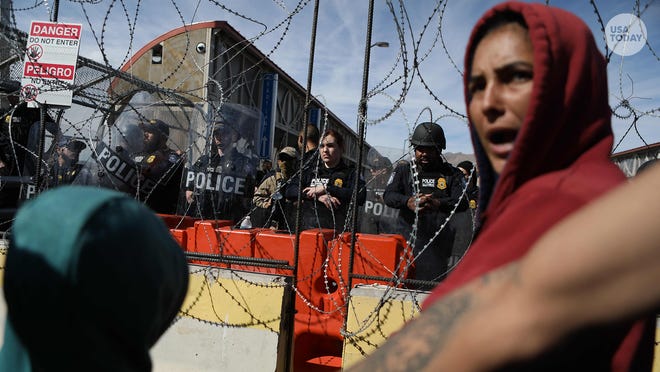
The Biden administration announced Wednesday it will reinstate oil sanctions on Venezuela in response to President Nicolàs Maduro’s failure to hold free and fair elections that were scheduled for July.
“We no longer believe Venezuela can achieve competitive elections,” a senior U.S administration official said Wednesday in a call with reporters.
The move comes at a tenuous time for the U.S. economy and border issues.
Although most economic indicators have turned positive in recent months, interest rates and inflation remain high, and the American public isn’t feeling financially stable. A jump in gas prices now, which the loss of Venezuelan oil could trigger, would add to that instability.
Sanctions are also most likely to hurt people at the bottom of the economic ladder, which could push more Venezuelans to seek opportunities elsewhere. Venezuelans already account for one of the largest nationalities trekking to the U.S. southern border.
Prep for the polls: See who is running for president and compare where they stand on key issues in our Voter Guide
The administration conceded that banning Venezuelan oil will probably add to the flow of migrants.
“This administration is also very committed to working cooperatively with our partners throughout the hemisphere on migration management to make sure that it’s more effective, that it’s humane and that the need for people or desire for people to cross their borders without documentation can be vastly reduced,” a top administration official told reporters Wednesday.

Last October the Biden administration met with Maduro in Barbados and signed a six-month license to buy Venezuelan oil if Maduro held free elections, released political prisoners and allowed dissidents to run for office.
While Maduro has said he will seek another six-year-term, his government has already barred some candidates −including popular opposition leader Maria Corina Machado −from registering for the election.
Senior U.S. officials said because Maduro had not lived up to those promises, it would allow the license to expire on Apr. 18 at 12:01 a.m. Eastern time.
“Venezuela has thus far fallen short of its commitments in terms of opening up the democratic electoral process and therefore made the decision not to renew the license and to allow it to expire,” one top official said. “That does not mean that we are not going to still continue to engage in a constructive and pragmatic way to try to move the election back towards a better course.”
Another official said the agreement signed in Barbados represents “the only path forward” for the two countries.

The situation has put the Biden administration in a bind.
A political, economic and humanitarian crisis in Venezuela has deteriorated sharply under Maduro, who has been in power since the death of Hugo Chávez in 2013. Over the past decade, the overall political situation has pushed at least 7.3 million people to migrate, mostly to neighboring Latin American countries, but more recently to the U.S. southern border.
The Biden administration granted temporary legal status to almost half a million Venezuelan migrants who are already in the country last September.
A month later, U.S. and Venezuelan officials announced that direct deportations would restart in October after being stalled for years due to diplomatic tensions. Both actions were seen as major steps from the Biden administration toward trying to curb the influx of asylum seekers on the southern border.
More than 380,000 Venezuelans have been caught crossing the U.S.-Mexico border illegally since Biden took office in 2021, up from previous years, according to Reuters.
And in December, the Biden administration swapped a longtime Maduro ally in exchange for securing the release of 10 imprisoned Americans.

As part of the deal, Maduro agreed to release 20 jailed Venezuelans who the U.S. considered to be political prisoners.
At the time Biden called it a “positive and important step forward,” in ensuring the Maduro regime met its commitments to an electoral roadmap.
Contributing: Kim Hjelmgaard and Karen Weintraub






